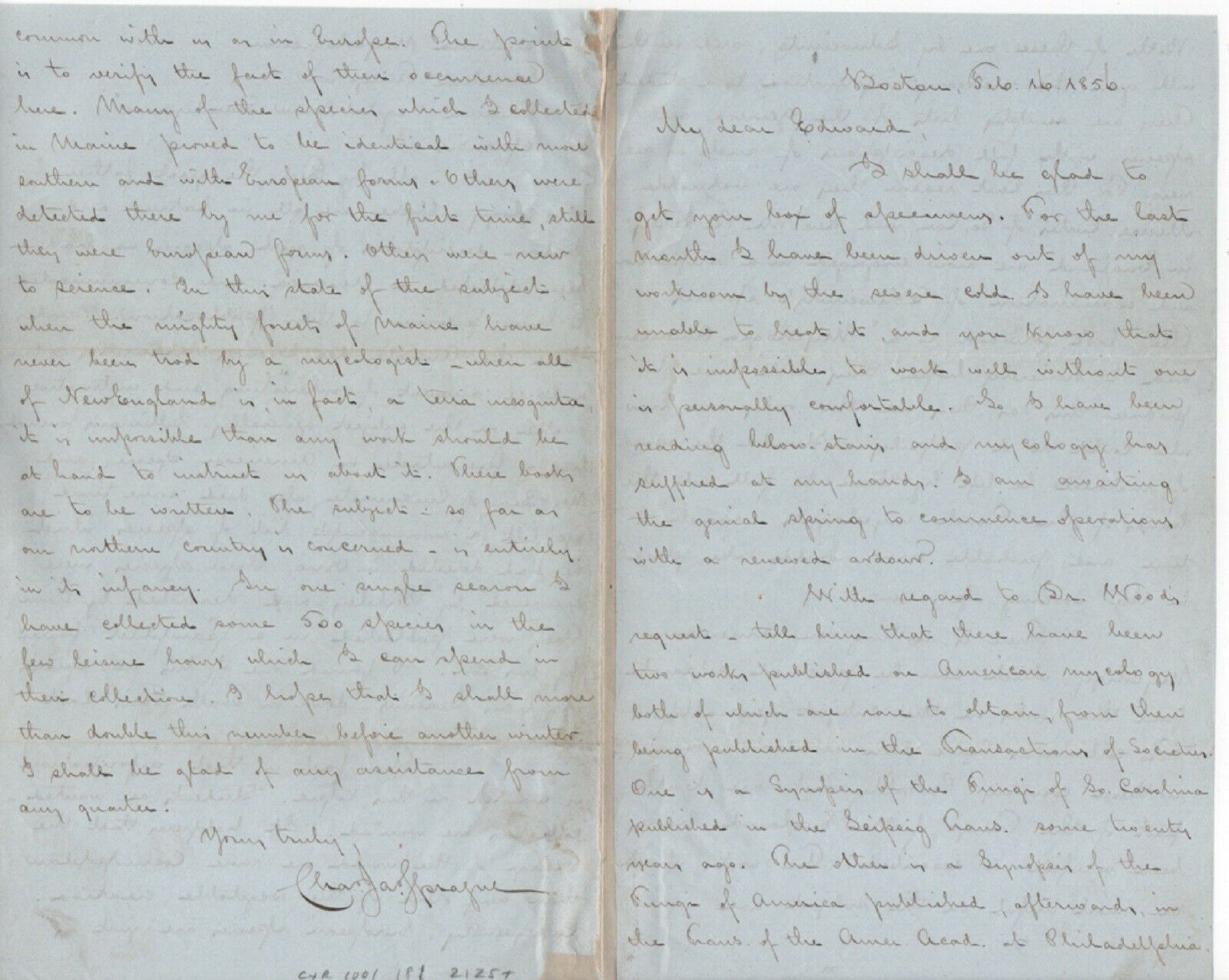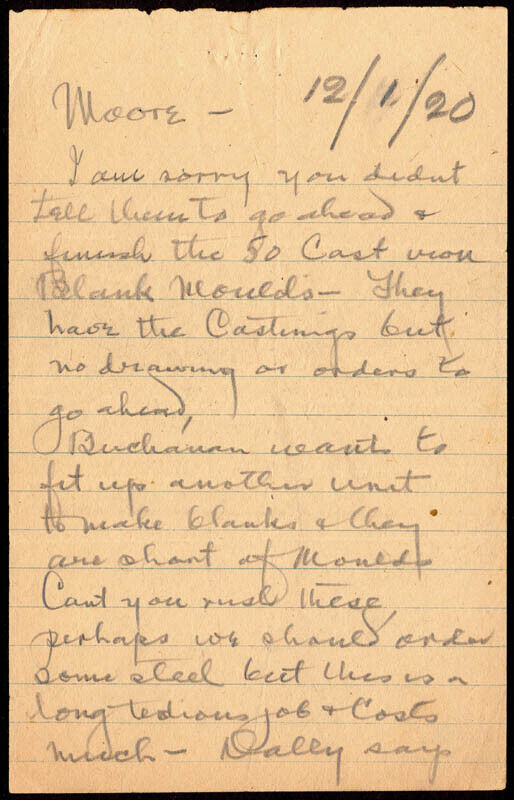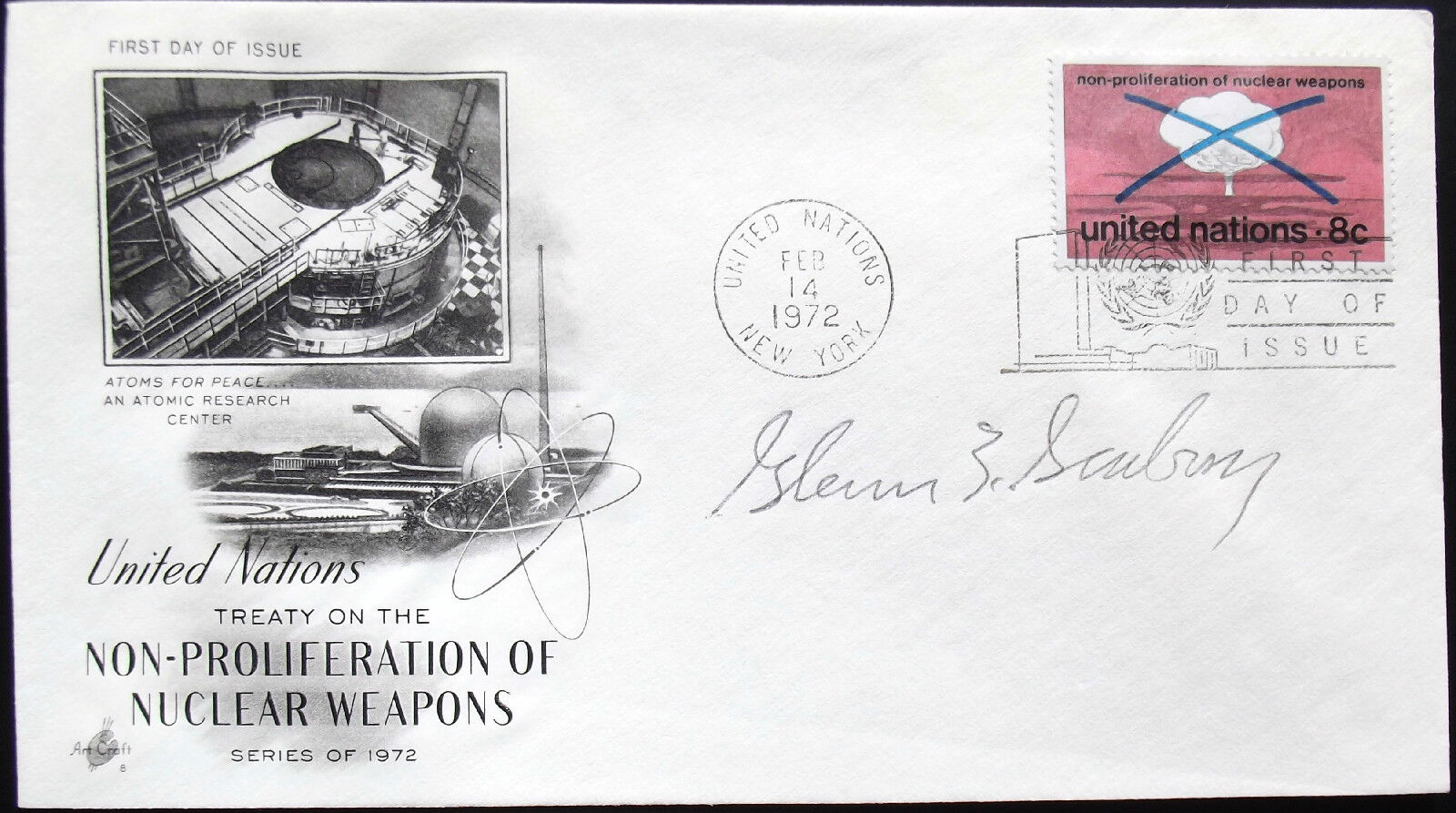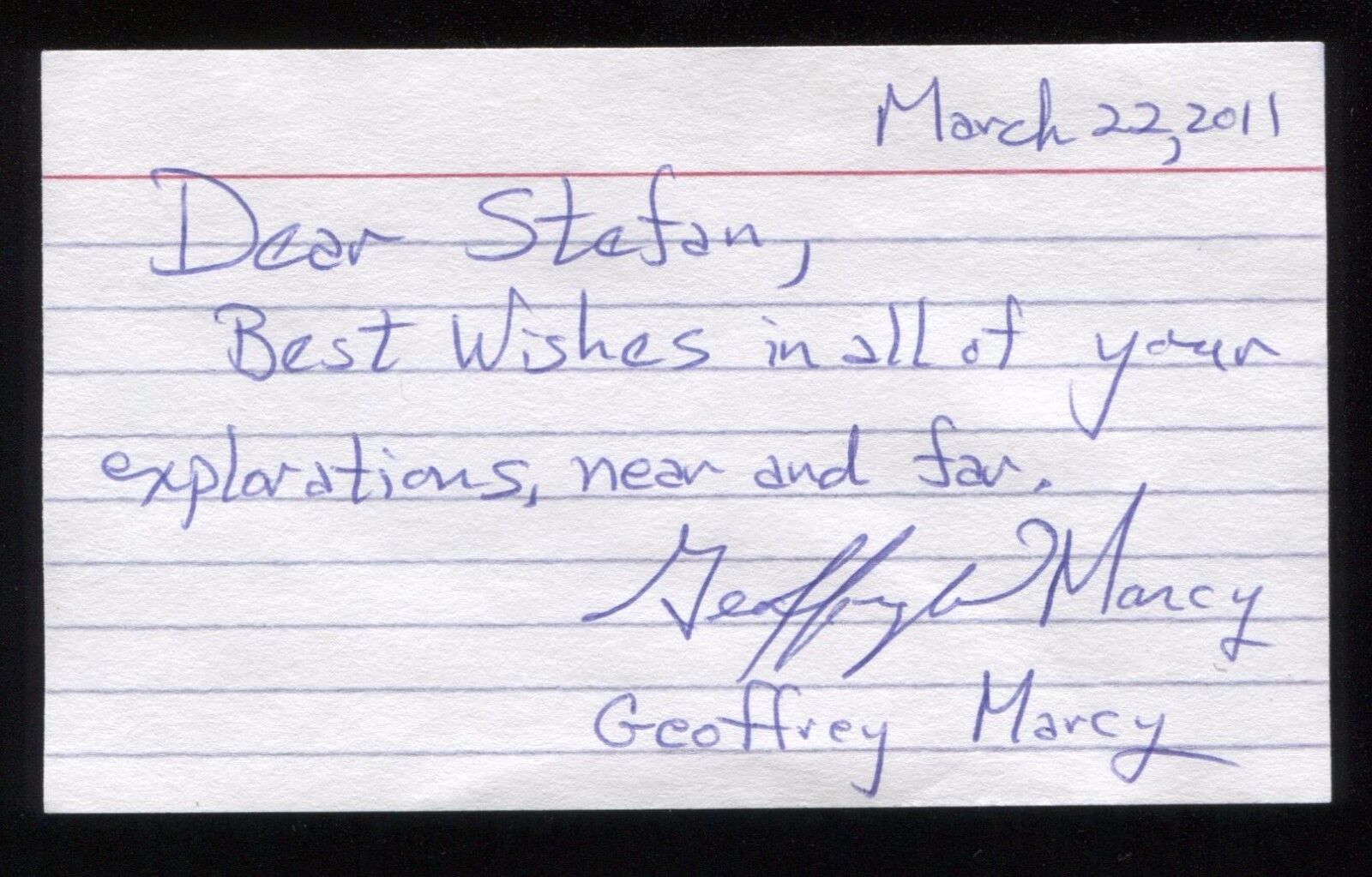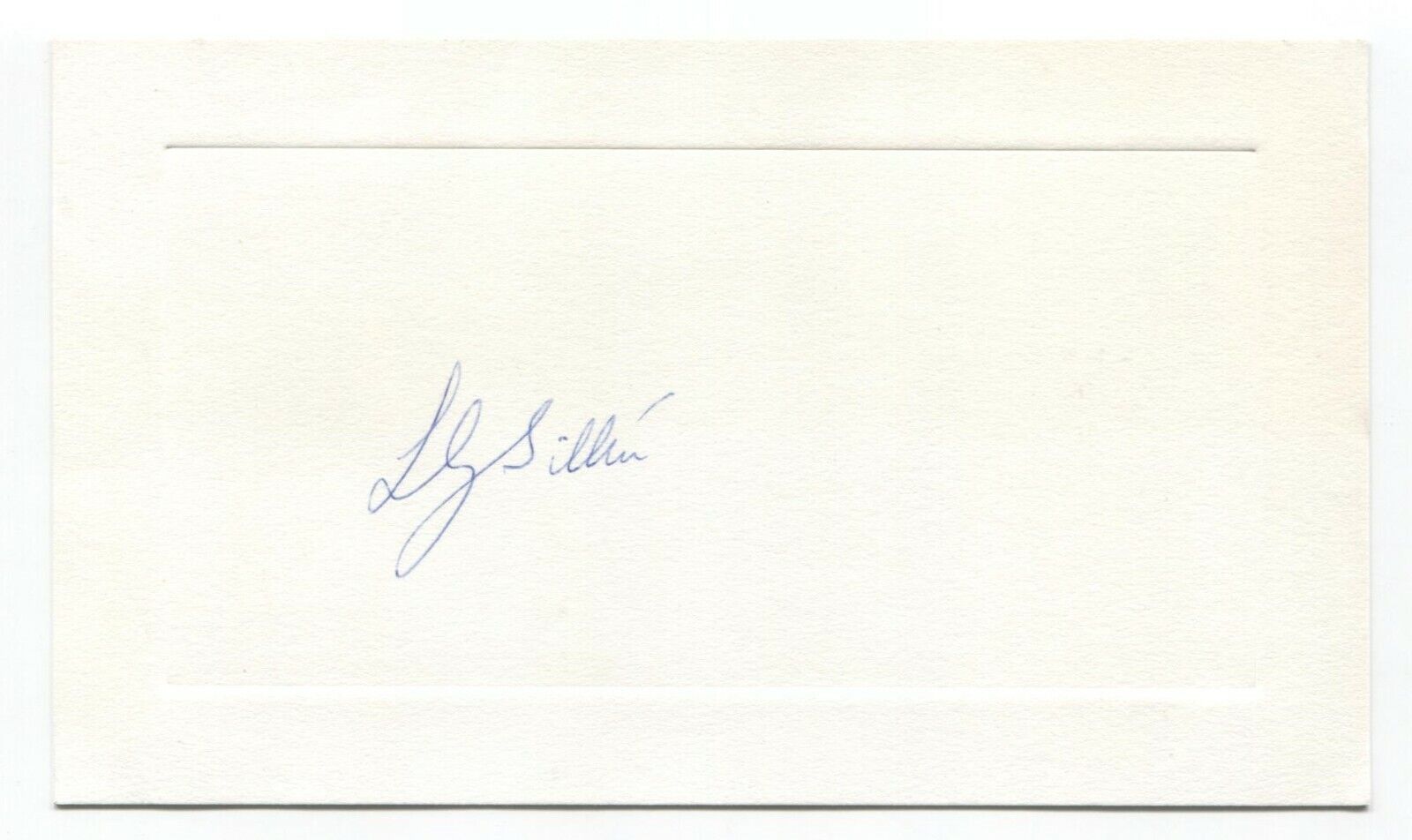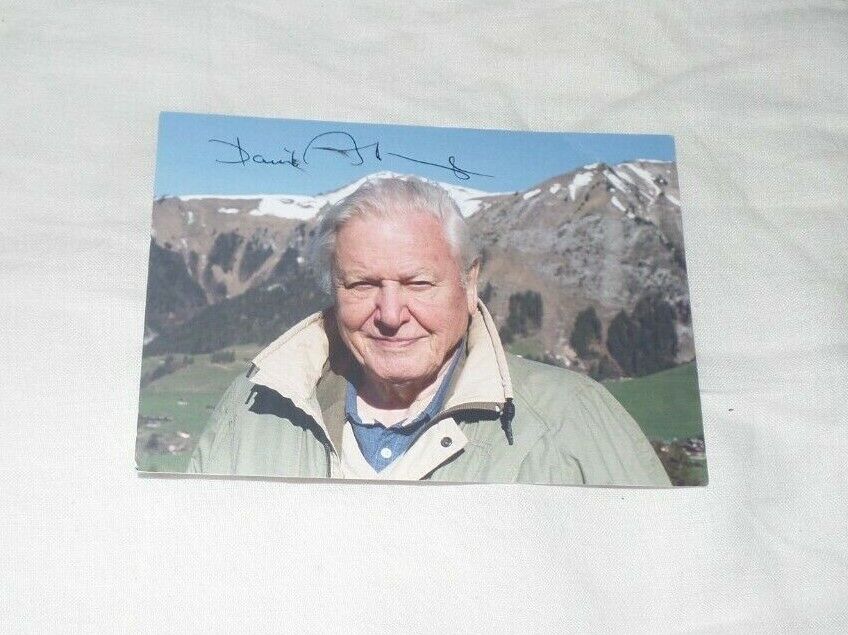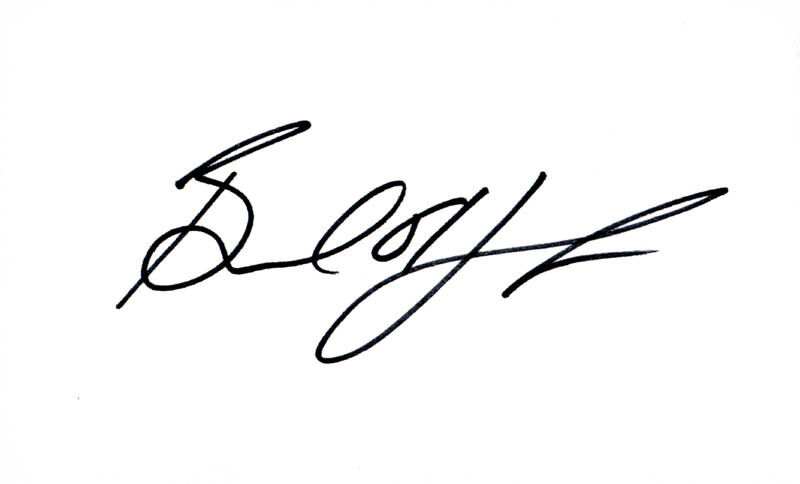-40%
Charles James Sprague - important letter on the early study of fungi in America
$ 316.8
- Description
- Size Guide
Description
Charles James Sprague – botanist, early American mycologist. ALS, Boston, Feb. 16, 1856, to “Edward” 4 pages on a folded bifolium sheet of blue paper approximately 5 x 8. Important letter on the early study of fungi in North America. Sprague offers some discouraging advise on finding reference works for students interested in the still small field of mycology – there are few and the better ones are difficult to find. His suggested lists offer nice insight into the limited range of research and challenge for new students to get into the field. That leads to his advice that the field is wide open for original research on American fungi and the need for more people to move into the field. He describes some of his own work and the collection of 500 new samples in a relatively short time.Sprague was an enthusiastic researcher and an avid collector of samples. Sprague was not a professionally trained scientist, nor did he make his living in the field yet contributed so much to the research that he is considered a pioneer of the American study of the subject. Most of his collection now resides at the Boston Museum of Science, successor organization to the Boston Society of Natural History, where he served as Botanical Curator about the time of this letter.
The letter is in generally good condition with remnants of a mounting strip on the left margin.
This item is offered by Custodians of History, Inc.
I deal primarily in historic autographs.
All material comes with a five-day return policy and a written lifetime refund guarantee for authenticity, offered to the original buyer.
I am a member of the Professional Autograph Dealers Association and Manuscript Society.
Listings on eBay are run occasionally but enough to justify saving as a "favorite seller" on your eBay page.
Please see my other listings of historic autographs and some ephemera running on eBay.
Boston Feb 16, 1856
My dear Edward,
I shall be glad to get your box of ______ For the last months I have been driven out od my workroom by the severe cold & have been unable to heat it and you know that it is impossible to work well without one is personally comfortable. So I have been reading below stairs and mycology has suffered at my hands. I am awaiting the genial spring to commence operations with a renewed ardors.
With regards to Dr. Woods request—tell him that there have been two works published on American mycology both of which are rare to obtain, from there being published in the Transaction of Scientists. One is a synopsis of the fungi of So. Carolina published in the _____ _____. Some twenty years ago. The other is a Synopsis of the of the fungi of America publishes afterwards in the ___ of the Amer. Acad. at Philadelphia
Both of these are by Schweinitz [Lewis David de Schweinitz] and neither will give the necessary information to a student. They are simply lists of the Genera and species with full descriptions of such as are new. For this last reason they are valuable. Messrs Curtis [Moses Ashley Curtis] of So. Car. And Rev Mr. Berkeley [Miles Joseph Berkely] in England are now engaged in a verification and examination of Schweinitz’s species. They look forward to a Mycologia Americana and I sincerely hope they will live to produce this, as they are the only men now who could do it properly. Should the mass of material be left by them to fall into hands of the French mycologists—much time and probable error would take place in the working up anew.
There is nothing an American Mycology which can be presented separate from the works on the subject generally. Thus collections have been made in our northern country. Probably not one tenth parts of the fungi of New England have been verified or described. The works which are mot useful on the subject are
Systemma Mycologicum/Elenchus Fungorem/ Systemma Vegetabilium Scandinaviae/ Epicrisis
All by Fries, [Elias Magnus Fries] the great father of mycology. These are all in Latin and contain descriptions of such species as had been detected in America and communicated to live previous to their publication. Besides these the Annals des Scienses Naturalles contain a large amount of interesting and instructive matter on the subject generally. Silliman’s Journal has a few articles on American species and Mr. Lea pf Cincinnati, who dies some time ago left a manuscript list of species, which he had detected in Ohio. Once species were examined by Berkely and described by him they were published in a pamphlet form by his son. I found one of his new species, Agaricus Leainus (?) down in South Paris last summer.
The fact is that information is wanted on this topic. Students are wanted -collectors are wanted. It happens that the fungi of the world are more cosmopolitan than any other of the vegetables creation Consequently European species are just as
Common with us as in Europe. One point is to verify the fact of their occurrence here. Many of the species which I collected in Maine proved to be identical with more southern and with European forms & they were detected there by me for the first time, still they were European forms. Others were new to science. In this state of the subject when the mighty forests of Maine have never been trod by a mycologist—when all of New England is in fact a terra incognita it is impossible than any work should be at hand to instruct us about it. These books are to be written. The subject so far as our northern country is concerned is entirely in its infancy. In one single season I have collected some 500 species in the few leisure hours which I can spend in their collections. I hope that I shall more than double this number before another winter. I shall be glad of any assistance from any quarters.
Yours Truly
Charles Sprague
